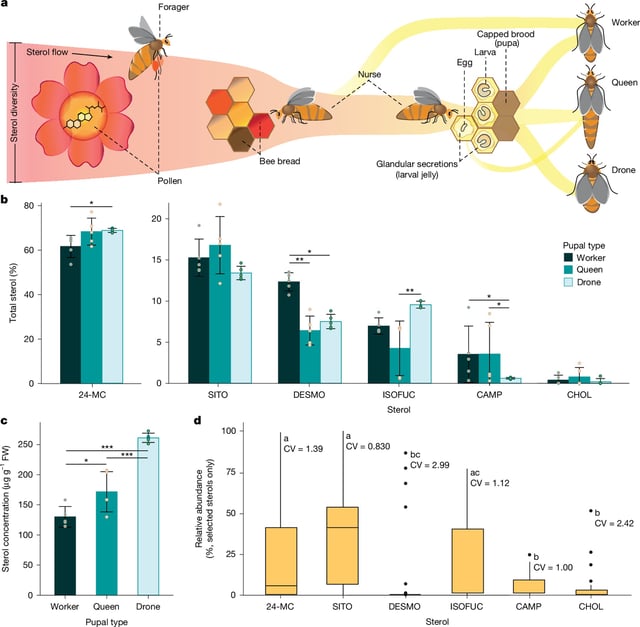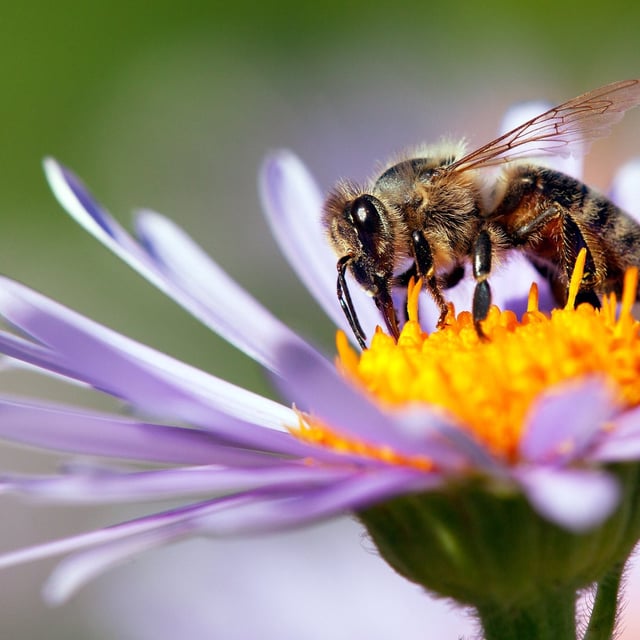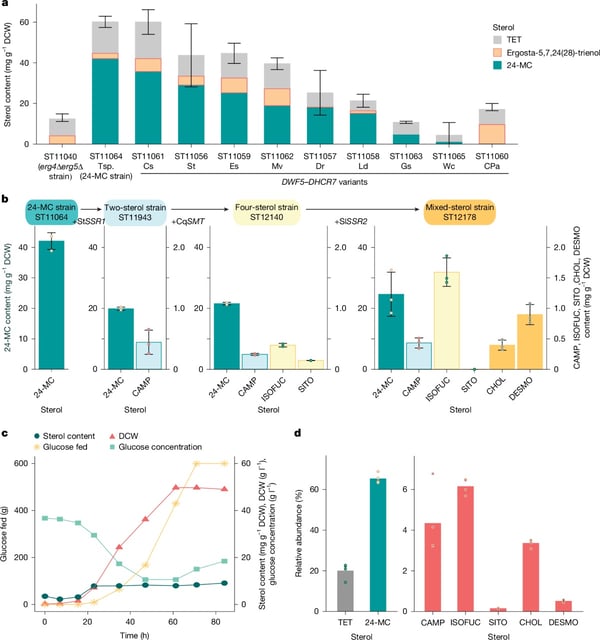Overview
- An Oxford-led team used CRISPR to program the yeast Yarrowia lipolytica to produce a precise mix of six essential sterols normally supplied by diverse pollen.
- Diets fortified with the sterol-rich yeast yielded up to 15 times more larvae reaching viable pupae compared with a typical commercial bee feed.
- Colonies on the supplement sustained egg laying and larval rearing for the full 90 days, unlike sterol-deficient controls in the enclosed trials.
- Chemical profiles indicated larvae from supplemented colonies received sterols comparable to those seen in naturally foraging bees.
- Researchers plan large field studies to evaluate long-term colony health and pollination performance, and say the supplement could reach farms within about two years if validation and regulatory reviews succeed.


